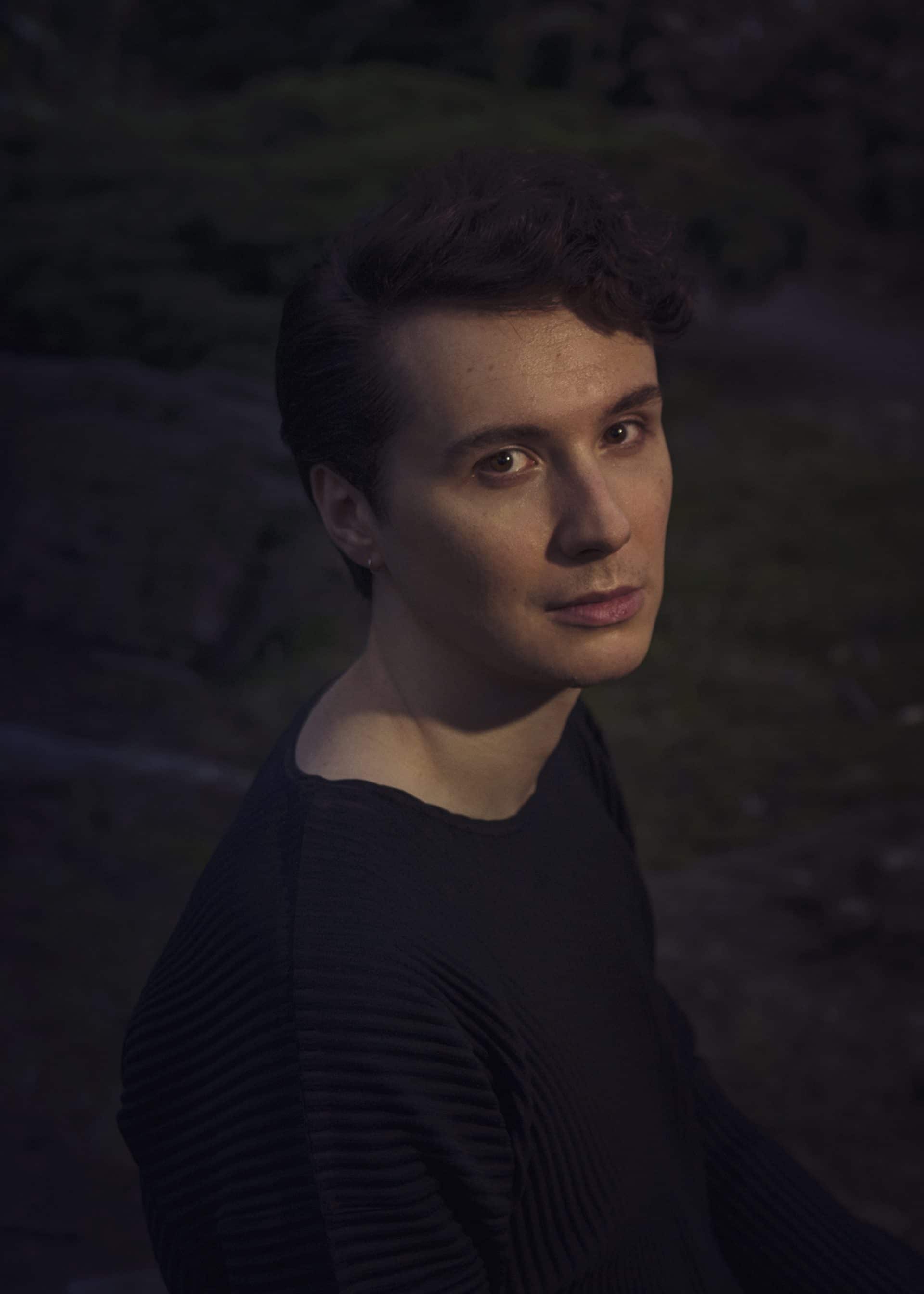Daniel Howell on Depression and How to Get Through The Night
Mental Health
Daniel Howell is the YouTube star breaking boundaries about depression, who has now released a book to help people with mental health issues.
Daniel Howell is one of the most popular YouTubers out there, with millions of followers and a refreshing line in self-deprecating humour that has made him stood out from much of the braggadocio on that channel. He is also someone who dared to go beyond the jokes and gaming on his channel to reveal his battles with depression to his young audience a few years ago, producing a huge response from people. Now he has written a book about mental health, called ‘You Will Get Through This Night’. A mix of information, advice and laughs, the book is a welcome addition to the elevation of mental health as a national issue, and it manages to be so in a way that is going to connect brilliantly with young people. We grabbed a word with Daniel over Zoom to find out more about it…
When did you decided to write the book and what was the process like?
It was a very serendipitous journey I never planned. All this talking about myself and mental health, and sharing these quite intimate details about my own life, was never the plan. I started my career trying to be funny, just being a clown on the internet, but as time went on two things happened: one, a sense of responsibility creeping up on me where I realised anyone with a platform has an impact on people, and even if you think you’re just being funny, if you do share yourself, people relate to you and you end up resonating with them on some level.
Also just for me, I have always been so career focused, I’m one of those guys that pushes their well being to the back, and after years of me doing that it just got to the point where I couldn’t do it anymore. It was not only affecting my ability to be good at my job, and be friends with people and nice to be around, but creatively it was this real hump where I felt like if I don’t sort my life out, and get on top of these problems that I know are lurking behind me, I’m not going to be able to go forwards.
It was that which led me to talk about my experiences with depression in that YouTube video ‘Daniel and Depression’ that I uploaded in 2017, and that was a huge moment for me. Even five years ago, there was such a taboo around mental health. These days people go, ‘ aren’t we all open about mental health now?’ but just five years ago, it was a completely different world. I thought me bringing up a word like depression would destroy my career. ‘Are people not going to want to work with me? Are my friends going to think I’m strange?’
But I was honestly surprised, for the first time in my life, by the reaction I got from humanity. Because my upbringing led me to being very cynical, to be very defensive and to protect my vulnerability. Actually when I shared something that was so raw, people appreciated it. On some level people were like, wow you articulating it made me understand something I didn’t get about myself, or my mum’s been through this and I finally get it, or now I know what my friends are going through.
When you open yourself up, despite the fear, people appreciate it because this is how people think and feel. We’re all vulnerable, we’re all trying to protect ourselves, we’re all putting on this front, focusing on our careers, pushing everything to the background; but then it’s a truth that when you open up about how you really feel, not only is that a weight lifted for you but it lets other people in.
Then I became the mental health guy. I didn’t ask for it, it became my thing.
The book always had the question of what it might be. People always want to write their life stories, but firstly my entire life story is already out there on the internet, it was there in real time. I thought if I’m going to do this, I want to do a mental health book that just gets straight to the point, it’s not going to be too scientific, it’s not going to be too spiritual or flowery, it’s going to give you the information you need, the tools, the tips, the life hacks, the stuff that science has shown will make a difference, as bare as we can, in bullet point form. And then my job is to make it stupid and funny by using myself as a punching bag doing everything wrong in terms of managing your mental health. For me it’s the book I wish I had five, ten years ago.
Was putting it together enjoyable, once you’d given yourself permission to have fun with it?
Yeah writing a book and collating all these life saving tips on mental health, was good for me. The process of writing the book was like reading it. I needed the experience of putting it together so I could learn from it myself.
What I’ve learnt from just being funny is it’s a bit of an excuse to give yourself therapy. You’ve set yourself the task of telling this story, making this point or joke about something, and in the process of trying to find out whatever this point or joke you’re making, there’s a bit of a moment of self reflection in there.
So it’s fun to have an excuse to tell a story and be funny but for me it’s been emotionally cathartic too.
What are the main things you learned or that even changed you?
One thing was the 360 around your lifestyle. The book is structured practically into 3 parts. The first part is what are things you can do right now to change the way you feel, the second is lifestyle, what changes can you make, and then the third part is looking deeper, at more long term things about readjusting your mindset and working out what makes you as a person.
The process of going through the lifestyle for me felt a bit like a roast. Things like the importance of your social life, the importance of your nutrition, the importance of how often you move, and it was very difficult to be aware of what might just be my personality and preference. I’m an introvert, I’m a bit of a nerd, I like to stay inside, I don’t like to party a lot, and I just learned that if you don’t go jogging you’re going to have more anxiety than someone who doesn’t. It was good to have all that shown up.
A nugget that was quite profound is that you can always change the way that you feel. I was always having days where I was really stressed from what I was working on, or a period where I’d be really depressed, and sometime I would wake up and immediately know I’m not having a good mental health day. When I’m not going to be able to perform, I’m not going to be a very helpful friend. I just used to say to myself ‘this day is a write off’. But what I learned from this book is you can change how you feel by doing something. Your activity directly influences how you feel.
It got rid of the excuses because sometimes it was like, ‘I’m having a bad day I simply cannot do that task’ when you probably can. It’s empowering for yourself to say, ‘Actually if I eat something, if I get a change of scenery, if I talk to someone, if I problem solve to question my thoughts and readjust my mindset, you can change how you think and feel on any day.
With mental health so many people ego through their life thinking it’s this weird mysterious fog that they can’t impact on. Sometimes you feel bad and there’s nothing you can do about it. But actually we’re just weird hairless apes, we’re not that complicated, and there are little things we can do to snap ourselves out of it.
How do you think it’ll fit into the current times?
The idea that this book is coming out when our society is opening up again is almost a divine intervention! There is literally no better time to sort your life out. We’ve all gone through so much, this collective trauma, and the dent to our lifestyles and ability to self-care. Not only have we had all the joy ripped away from us, but people haven’t been able to go to the gym, to get support from friends, and this is a new chapter for everybody.
I’m seeing it as: can take this next step and not fall back into bad habits? This is a good time to put a pole in the ground and move forward in a good direction.
What are the key things you’ll be taking forward?
It’s not just the lifestyle stuff, it’s also about mindset changes. I’m a worrier, one of these people that thinks myself into oblivion. It means I’m analytical but I’m not very present, I spend a lot of time in my head prophesising my own doom. One of the things in the book is realising that you are not your thoughts. If you get a negative thought in your head actually that’s just your brain’s suggestion that you should feel stress about this, that and the other but we don’t have to stay fixated on these worries.
I’ve spent the last ten years in therapy, deeply going into myself asking questions about authenticity, confronting my sexuality, but also it’s been about just day-to-day having a better relationship with my own mind. That when I get these emotions that want to spiral into a panic, or make me feel very stressed, just to talk back to myself with the right attitude and say I don’t need to go down this rabbit hole due to this thought. I can just acknowledge it was an idea my brain had to think about and I can choose to do whatever I want with it. I can choose to solve the problem and break it down, I can ask for help I can give myself a reality check, or I can just acknowledge the thought and say ‘No thank you I’m going to do something else with my day.’
Back to the first depression video – are you aware of the difference between you then and now?
It’s profound, I would say me aged 26 was someone who didn’t question anything. You think you have a career priority and if I have any emotional baggage, it’s just not important right now.
Obviously there was the huge issue of my sexuality which had a huge impact on my mental health. My entire life story from childhood to how I was perceived as a public figure, how I operated day to day, and even my acceptance of a thing that I knew was true deep inside me, I had an incredibly toxic view of that at the time. I needed to understand it. I went to therapy and learned a lot about the way I would talk to myself, the way I would beat myself down and tell myself that things are the way they are and there’s nothing I can do about it. I should tolerate certain situations, and that was all wrong, so I’ve become much better at being fair to myself. Accepting my own vulnerability instead of building up a huge wall; letting it down, being honest with myself which is important if you ever want to change anything for the better. Also you get closer to other people when you feel like they can really see you.
How have conceptions of masculinity affected that?
The whole concept of masculinity was huge in my life. I had a very macho dad, he didn’t emote, he didn’t share anything, it was all jokes and all on the outside. I got to 16, 17, that age when you notice adults for the first time and cotton on to it. I could see the pain he was going through but he didn’t want to confront it. I also went to an all-boys school where there’s no vulnerability, you can’t give a small opening for someone to jab a compass in. That was the culture that shaped me. That continued into my late twenties when I had the moment when I realised being honest with yourself about something going wrong is bravery. It’s not weak to admit vulnerability if it’s going to help you grow. It’s not a sign of weakness to go to the uncomfortable place. Life is a series of uncomfortable obstacles that you put off, but every single time you go over them, you look back and go, ‘oh why did I waste so much time not doing that sooner?’
Is masculinity shifting do you think?
Definitely, roles in society have been so Neanderthal. If you have a personality with a stiff upper lip and it works, good for you, but someone else may feel pressured to hold things in and eventually they’re going to crack. It’s ok to ask for help and to let go of that, that’s what we’re learning in society. Conversations in mental health are so much more normal. There’s a long way to go in terms of judgment and misunderstandings, but I hope the book will spell it out for a lot of people. The book has been fact checked by a psychological professional, Dr Heather Bolton and all of the advice in the book is from evidence based practices that have been shown to have a good effect. It’s not just a nice sounding idea. We all have that friend on Instagram who’s like, ‘Positivity! Yeah here we go!’ And you go, ‘Wow that image had great graphic design it must be true.’ No it isn’t. So we’re in an age of people opening up but there’s also a lot of nonsense on Facebook so when we’re thinking about how we feel and making changes to our lives, we need to trust the experts.
Daniel’s book ‘You Will Get Through This Night’ is out now.
Follow Daniel on Twitter:
i am feeling very emotional ..this is unusual for me
the idea that this book will genuinely help people – make them laugh and feel closer to me, makes me feel like all the struggles i have been through have been worth something. thank you. https://t.co/jmP67UZdwQ #thisnight pic.twitter.com/qpxPdoFIf1
— Daniel Howell (@danielhowell) May 18, 2021

Join The Book of Man
Sign up to our daily newsletters to join the frontline of the revolution in masculinity.


















